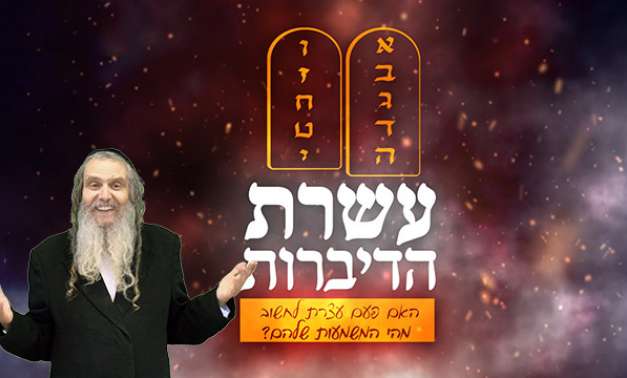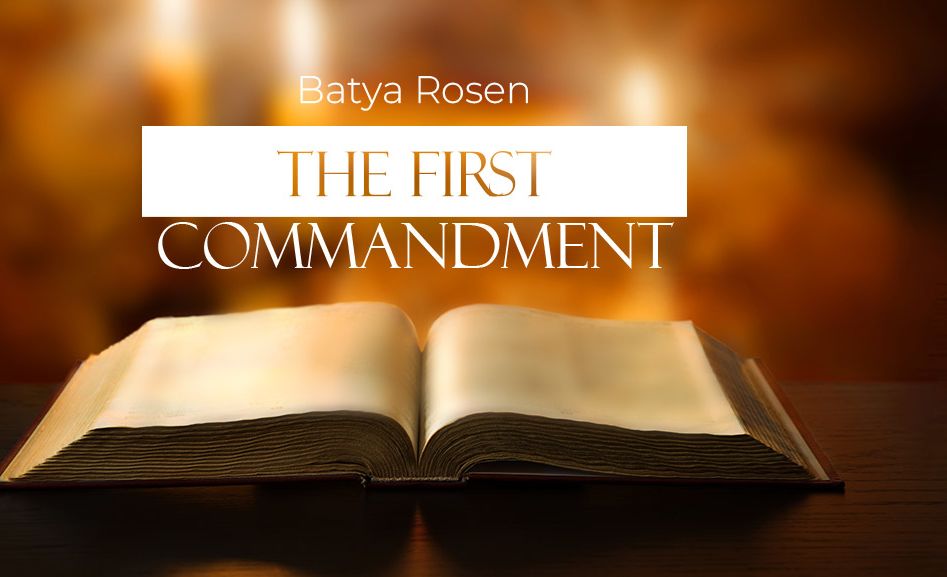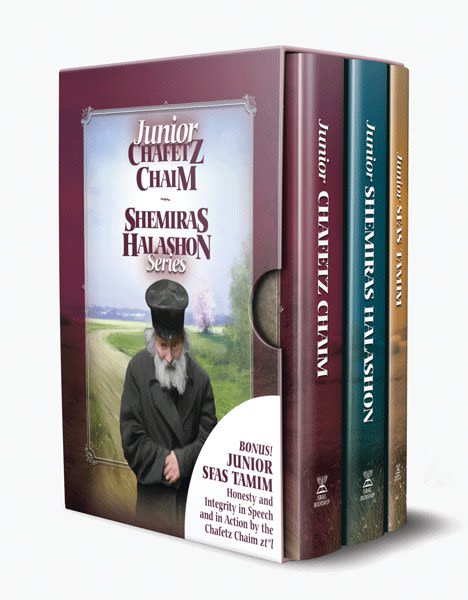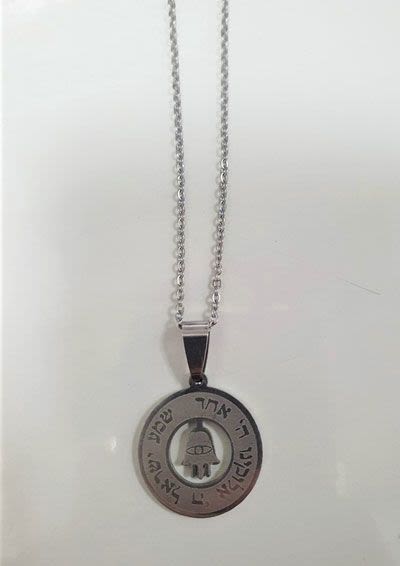
It’s Not My Money
And so the scholar did what only about five other people in the world would do - he ran back to Tzemach to return the money...

The Torah was given during Sivan and one of the laws given to us commands us to return any lost article we find. It sounds simple – except that nothing is ever as simple as it seems in Jerusalem …
Jerusalem has always attracted its share of colorful characters and the religious neighborhood of Meah She’arim, in particular, has been home to a motley collection of Torah scholars, beggars, and hidden tzaddikim (righteous people) since its founding more than one hundred years ago.
One of those characters that once “graced” the narrow streets of Meah She’arim was Tzemach the old clothes peddler. Tzemach had no fancy store and he didn’t even have a pushcart. He carried his goods around with him – and even modeled some of his latest acquisitions. For Tzemach was so poor that he had no place to call home – or to wash his clothes. Therefore, when an item of clothing he was wearing became dirty, he would simply trade it for a new-old article that he had recently come across.
Tzemach kept to himself. No one ever saw him open up a holy book or go out of his way to perform an act of kindness for a fellow Jew. And yet there were those – and they were knowledgeable people – who often wondered if maybe, just perhaps, Tzemach might not be one of those hidden tzaddikim upon whom the existence of the entire world depends.
Most people, however, didn’t give Tzemach a second thought. He was just one of those people that everyone took for granted when he was there, and that no one missed when he was not.
One day, however, that all changed.
There was a pious and learned Jew living in Jerusalem whose piety and learning were matched only by his extreme poverty. This Jew was so poor that he couldn’t afford to go into a store to buy a new coat or shirt. In fact, he was so poor that he couldn’t even afford the prices of the more “upscale” peddlers. So naturally when the time came to acquire a “new” jacket he sought out the services of Tzemach.
Tzemach showed the poor scholar what he had, which wasn’t much. However, Tzemach’s “not much” was still better than the threadbare jacket that the poor scholar was wearing and so a deal was quickly struck. The scholar went home a happy man, and Tzemach went back to sleep on the sidewalk.
When the scholar got home, he tried on his new jacket once again. He buttoned the two buttons that were still hanging on to the jacket by a thread, and that’s when he noticed that something was wrong. When the jacket was buttoned, something hard pressed against the man’s chest. The scholar quickly unbuttoned the jacket, stuck his hand inside the inside pocket and pulled out a bulging wallet.
Inside the wallet was a thick wad of American dollars. There was enough money in that wallet to feed the scholar and his family for years. There was even enough money to marry off his children. And so the scholar did what only about five other people in the world would do – he ran back to Tzemach to return the money.
Now the scholar, being a scholar, knew that he would probably be able to find some loophole in the law that would allow him to retain ownership of the money. However, this particular scholar wasn’t interested in loopholes. He was only interested in finding Tzemach as quickly as possible – and before his Yetzer Hara (evil inclination) began to try to convince him to keep the money. He was therefore greatly relieved when he saw the second-hand clothes dealer snoozing on the sidewalk.
“Tzemach! Tzemach!” the poor scholar called out. “Look what I found in that jacket you sold me!”
The scholar showed Tzemach the thick wad of money, but the peddler just shrugged his shoulders with indifference.
“So, nu, you found money,” Tzemach replied. “Mazel tov, use it in good health.”
“But it’s not my money,” the scholar insisted. “Here, take it. I found it in your jacket. It belongs to you.”
“I don’t know what you’re talking about,” Tzemach said gruffly. “That jacket wasn’t mine. I bought it from someone and I sold it to somebody else. The money isn’t mine, so stop bothering me. It’s time for my afternoon nap.”
Tzemach refused to listen to the scholar’s arguments, but the poor man was equally stubborn. He decided to bring the case before a beit din (a Jewish court of law) and let the judges decide.
When news of this unusual lawsuit made the rounds, all of Meah She’arim was abuzz. No one could remember such a thing ever happening before. Arguments over money were common, of course. But who ever heard of a case where each side insisted that the money belonged to the other person?
When the day for the case to be heard arrived, the two ragged Jews solemnly appeared before the judges. The scholar explained that he had purchased a coat – and not a wallet full of money – so he respectfully asked the court to return the money to its rightful owner.
Tzemach was equally brief and to the point. The truth was that he was terrified at having to appear before the court. If he wasn’t exactly the most exemplary Jew at least he had never before been accused of doing something wrong. Now he felt as if his whole life was being held in the balance.
“It’s not my money,” Tzemach pleaded. “I didn’t put that money in the jacket pocket, so how could it possibly be mine? Please make this man stop bothering me.”
The judges asked for everyone to step outside while they discussed the case. For Tzemach, it seemed like ages until they were all called back inside, although in truth the judges did not take long to come up with their verdict.
The head of the court, Rabbi Tzvi Pesach Frank, solemnly read out the court’s decision.
“Since both parties refuse to claim ownership of this money, the court has decided that the two parties should compromise. We rule that the money should be divided equally between them.”
Rabbi Frank carefully counted out the bills. One half he gave to the poor scholar and the other half he gave to Tzemach.
It was only when the dollar bills rested in his hand that Tzemach fully understood the court’s decision. And when he did understand, he let out a cry.
“No, no, you don’t understand,” Tzemach shouted. “The money belongs to the person I bought the jacket from. But I don’t know who he is so I can’t return the money to him. I can’t accept this money. It’s not mine. It’s not mine.”
With that Tzemach flung his share of the fortune down on the table. He fled out of the courtroom as fast as his legs could take him and within seconds he had disappeared into the maze of winding and narrow streets of Jerusalem.
***
Libi Astaire is the author of Choose Light! Chassidic Tales for Chanukah, Rosh Hashanah, Sukkos, Passover & Shavuos; Breakfast with Rav Zusha and Other Stories to Wake Up Your Soul; and the award-winning Jewish Regency Mystery Series. Visit her website for more information about these and other books.












Tell us what you think!
Thank you for your comment!
It will be published after approval by the Editor.